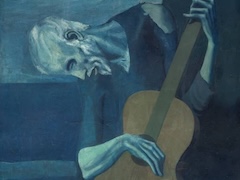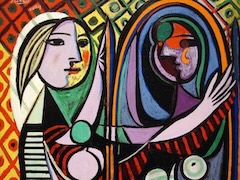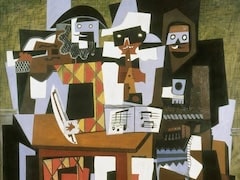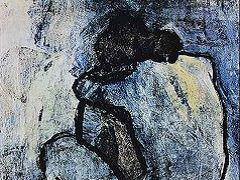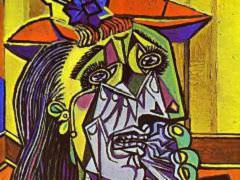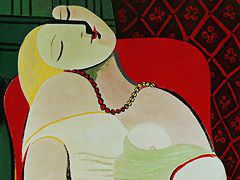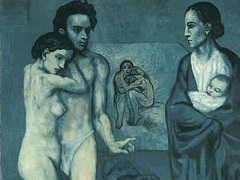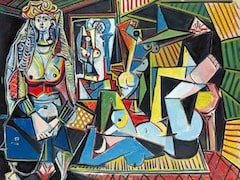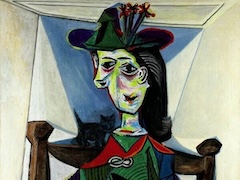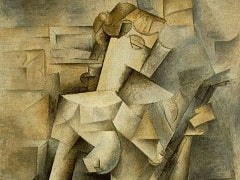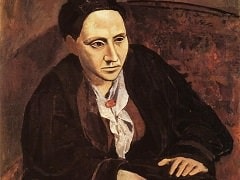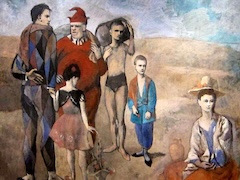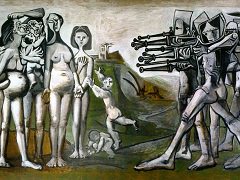Portrait of Ambroise Vollard, 1910 by Pablo Picasso
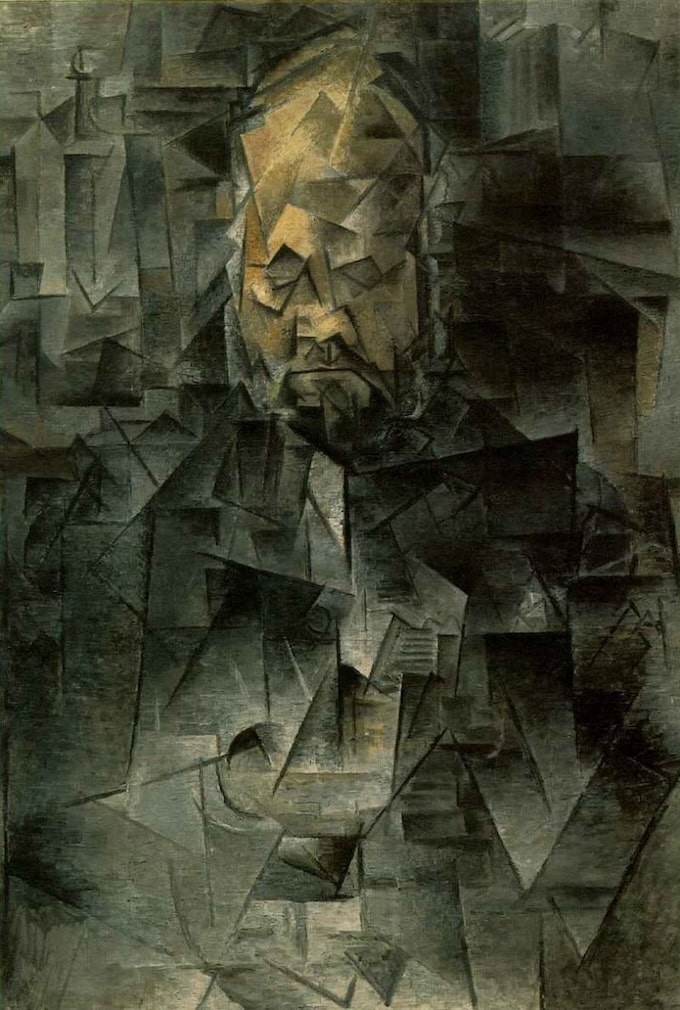
Ambroise Vollard (1867-1939) was one of the great art dealers of the 20th century. He championed Paul Cezanne, Van Gogh, Renoir, Gauguin and Henri Matisse. He promoted Picasso's blue and rose periods, but he was careful about cubism. When Picasso later returned to a figuration informed by cubist richness and surrealist eroticism, they collaborated on one of Picasso's greatest achievements: his lubricious, mytho-erotic Vollard Suite, 100 engraved plates completed in 1937, culminating in emotional portraits of Vollard, who was to die two years later in a car crash.
In Portrait of Ambroise Vollard, Vollard's downcast eyes, apparently closed, the massive explosion of his bald head, multiplying itself up the painting like an egg being broken open, his bulbous nose and the dark triangle of his beard are the first things the eye latches on to. They are recognizable. At least that's the way your mind, through habit, composes the details into information.
But what head? What beard? Above Vollard's eyes is a broken architecture of shards of flesh- or brick-coloured painting; planes that have been started and stopped, as if in a slow-motion exaggerated cartoon of the movement a painter makes between looking up, recording on canvas the detail he sees, looking back. The process of the painting reveals itself with gross, physical explicitness, and in doing so, creates a kind of caricature; Picasso monstrously transfigures the aspect of Vollard's head, its massive dome, that most impresses him.
There is not a single aspect of his face that is "there" in any conventional pictorial sense. The more you look for a picture, the more insidiously Picasso demonstrates that life is not made of pictures but of unstable relationships between artist and model, viewer and painting, self and world. And yet this is a portrait of an individual whose presence fills the painting. Vollard is more real than his surroundings, which have disintegrated into a black and grey crystalline shroud.
The most beautiful woman who ever lived never had her portrait painted, drawn or engraved any oftener than Vollard - by Cezanne, Renoir, Rouault, Bonnard... But my cubist portrait of him is the best one of all.”
-Pablo Picasso
As a portrait it is flattering, not least in its implication that Vollard is one of a tiny elite who understand cubism (that huge brain of his must have helped). With eyes closed like a tranquil, omnipotent god, Vollard is sublime.



